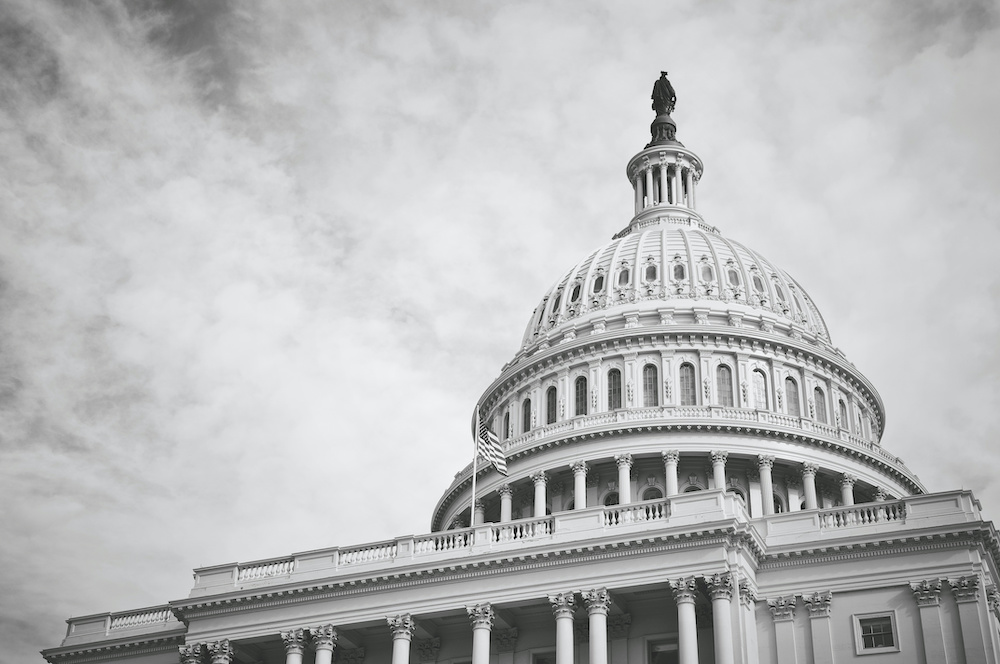
- Details
- By Native News Online Staff
A new bill would allow Tribal governments to benefit from the same opportunities for land acquisition as state and local governments currently do.
U.S. Senators Alex Padilla (D-Calif.) and James Lankford (R-Okla.) yesterday introduced bipartisan legislation to strengthen Tribal parity for the transfer of surplus federal property. The GSA Disposal Process Tribal Parity Act of 2024 would allow Tribal governments to participate in an existing process that allows the General Services Administration (GSA) to transfer surplus federal property to state and local governments below market value if those properties will be used for specified public purposes.
Senators Kevin Cramer (R-N.D.) and Mark Kelly (D-Ariz.) are cosponsoring the bill.
“As our nation works to strengthen Tribal sovereignty and self-determination, we must ensure parity with Tribal governments in our laws,” Senator Padilla said in a statement. “It’s long past time we fix this stark omission and allow Tribal governments the same opportunities as state and local governments to access surplus federal property, which will help provide additional housing, schools, and recreational opportunities for their citizens. I look forward to working with my colleagues to enact this commonsense bill as quickly as possible.”
When the GSA offloads federal real estate, they follow a process mandated by federal law and Executive Orders. Current law allows GSA to first offer excess property to other federal agencies. Still, if there is no further need for the property within the federal government, the property is determined as “surplus”. It may be made available for other uses through public benefit conveyances.
Under public benefit conveyances, the GSA can transfer these surplus properties to state and local governments at discounts up to 100 percent of fair market value for listed public uses like public health or educational uses, public parks and recreational areas, community centers, municipal buildings, homeless assistance, law enforcement and emergency response, and more. However, Tribal governments are not written into the statute and cannot access these properties that could be used for public purposes.
Last Congress, Senator Padilla, the late Senator Dianne Feinstein and Representative Doug LaMalfa (R-Calif.-01), enacted a similar law to advance Tribal parity in an existing public lands disposal law. Before enactment of their legislation, the Bureau of Land Management was able to sell and lease certain public lands to state and local governments, but not Tribes, below market value if those lands were to be used for recreational or public purposes. Following passage of the legislation, Tribal governments are now able to participate and are treated equally as state and local governments. The first land transfer under that program occurred recently when 88 acres of land were transferred back to Susanville Indian Rancheria.
More Stories Like This
Native News Weekly (August 25, 2024): D.C. BriefsUS Presidents in Their Own Words Concerning American Indians
I’m a Minneapolis Postal Worker. This Is What I Saw.
Next on Native Bidaské: Inside Dark Winds with the Cast of Season 4
'Sovereignty Predates the United States,' NCAI President Mark Macarro Tells Tribal Nations
Help us defend tribal sovereignty.
At Native News Online, our mission is rooted in telling the stories that strengthen sovereignty and uplift Indigenous voices — not just at year’s end, but every single day.
Because of your generosity last year, we were able to keep our reporters on the ground in tribal communities, at national gatherings and in the halls of Congress — covering the issues that matter most to Indian Country: sovereignty, culture, education, health and economic opportunity.
That support sustained us through a tough year in 2025. Now, as we look to the year ahead, we need your help right now to ensure warrior journalism remains strong — reporting that defends tribal sovereignty, amplifies Native truth, and holds power accountable.
 The stakes couldn't be higher. Your support keeps Native voices heard, Native stories told and Native sovereignty defended.
The stakes couldn't be higher. Your support keeps Native voices heard, Native stories told and Native sovereignty defended.
Stand with Warrior Journalism today.
Levi Rickert (Potawatomi), Editor & Publisher


